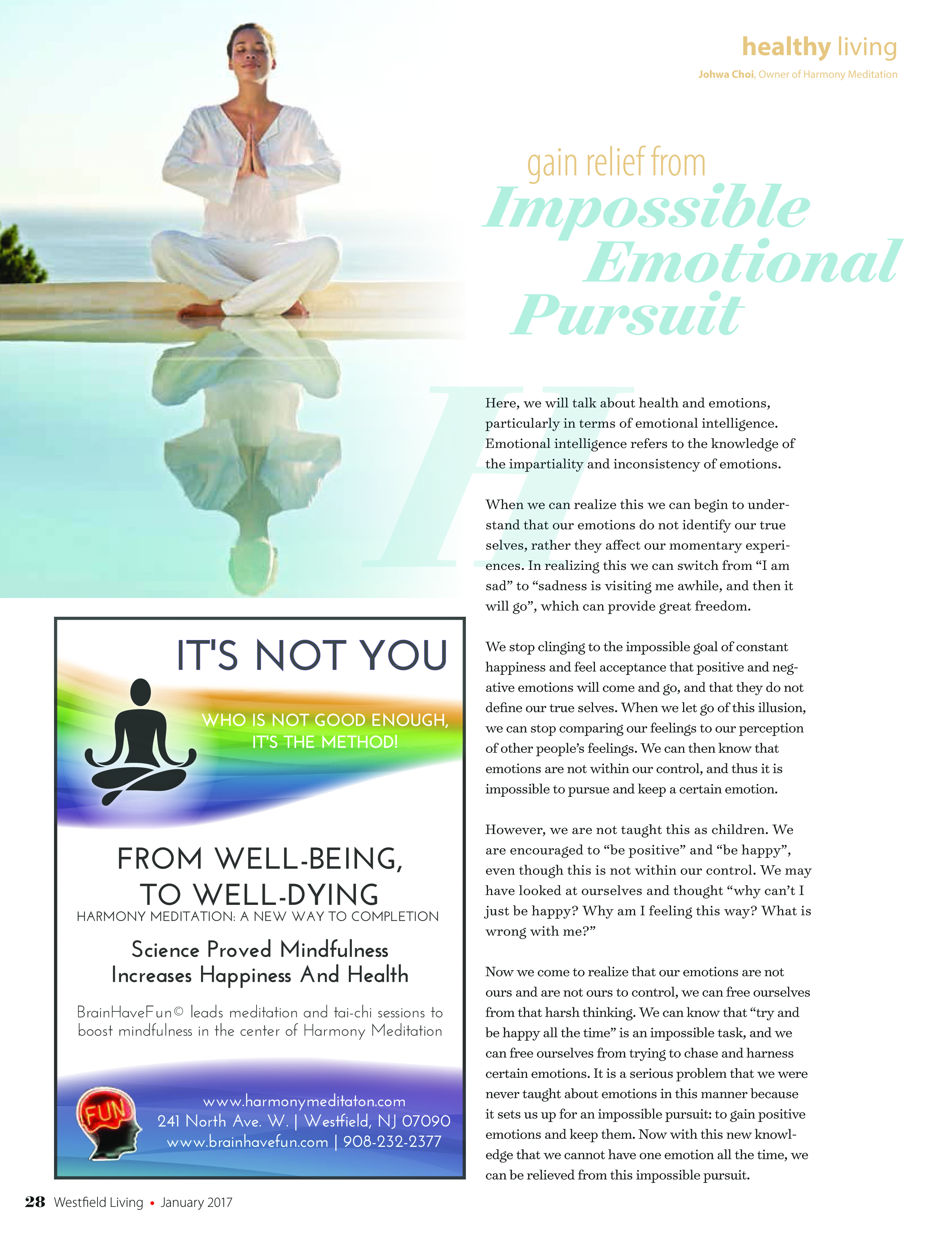
Here, we will talk about health and emotions, particularly in terms of emotional intelligence. Emotional intelligence refers to the knowledge of the impartiality and inconsistency of emotions.
When we can realize this we can begin to understand that our emotions do not identify our true selves, rather they affect our momentary experiences. In realizing this we can switch from “I am sad” to “sadness is visiting me awhile, and then it will go”, which can provide great freedom.
We stop clinging to the impossible goal of constant happiness and feel acceptance that positive and negative emotions will come and go, and that they do not define our true selves. When we let go of this illusion, we can stop comparing our feelings to our perception of other people’s feelings. We can then know that emotions are not within our control, and thus it is impossible to pursue and keep a certain emotion.
However, we are not taught this as children. We are encouraged to “be positive†and “be happyâ€, even though this is not within our control. We may have looked at ourselves and thought “why can’t I just be happy? Why am I feeling this way? What is wrong with me?â€
Now we come to realize that our emotions are not ours and are not ours to control, we can free ourselves from that harsh thinking. We can know that “try and be happy all the time†is an impossible task, and we can free ourselves from trying to chase and harness certain emotions. It is a serious problem that we were never taught about emotions in this manner because it sets us up for an impossible pursuit: to gain positive emotions and keep them. Now with this new knowl- edge that we cannot have one emotion all the time, we can be relieved from this impossible pursuit.
– Johwa Choi